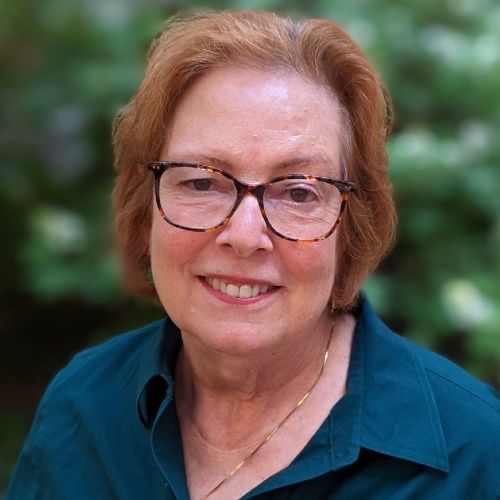The Koch Center’s momentum is taking it to the next level
- December 31, 2024
- By Jill Young Miller
- 9 minute read
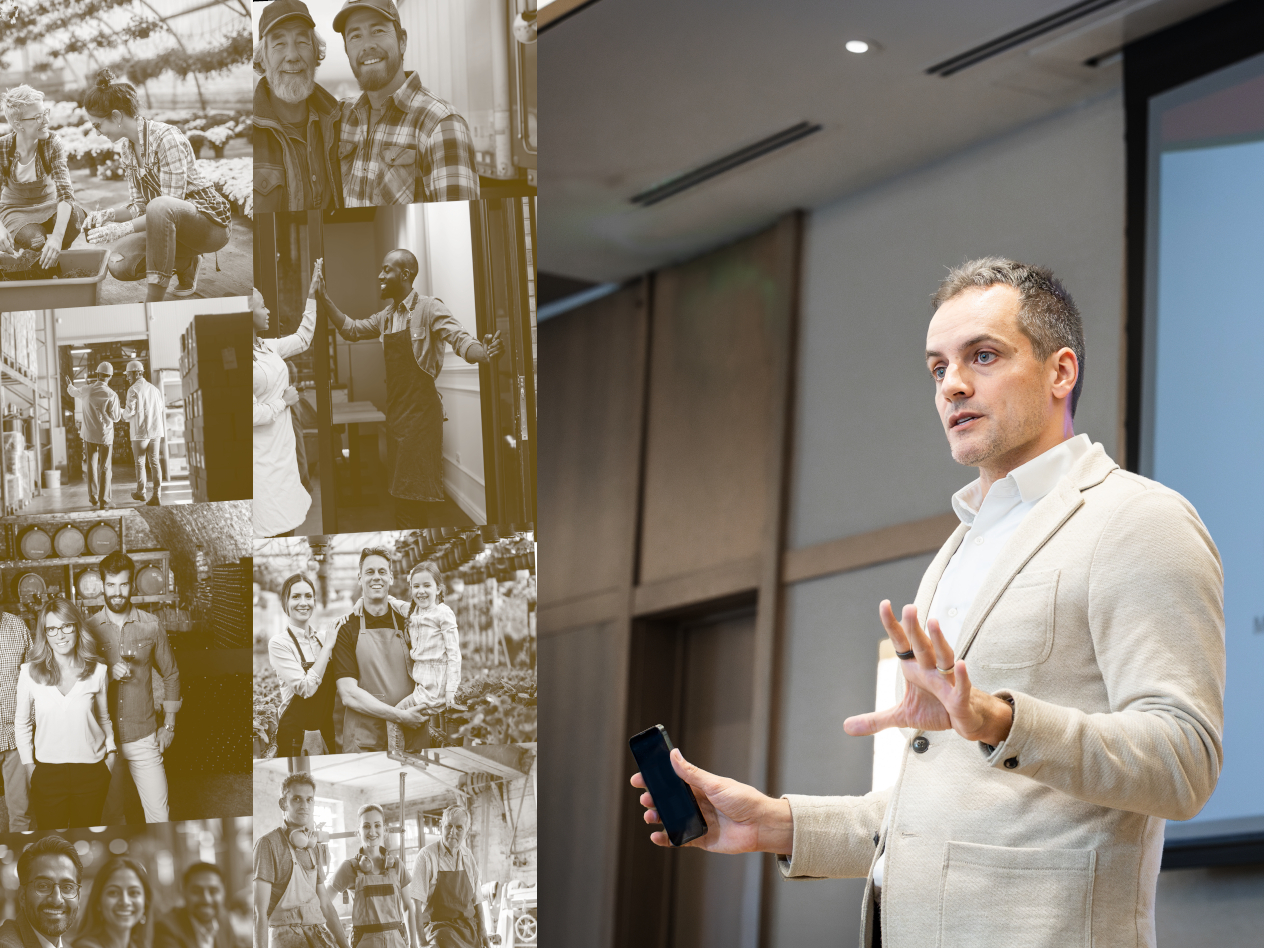
Nearly half of small and medium-sized business owners are expected to retire in the coming years, and an estimated $100 trillion in businesses will transfer from baby boomers to new owners.
This extraordinary wave of transitions — called a “silver tsunami” — will ripple through communities and the economy, and many owners aren’t ready: More than 85% don’t have a formal succession plan.
For a year, Peter Boumgarden, director of the Koch Center for Family Enterprise at WashU Olin, led an Olin Brookings Commission that researched the trend, paying particular attention to investors, owners, and employees.
On a bright day in October, he and commission members took the stage in a conference room at the Brookings Institution, a leading public policy think tank in Washington, D.C., to present the findings of their project, “Main Street’s Tidal Wave of Transition.”
“Fortunately, this silver tsunami does not have to be a man-made disaster,” Boumgarden told audience members. “As ownership changes hands, there is a significant opportunity for us to reimagine ownership structures, including increasing employee ownership, promoting longterm investor behavior, and fostering greater inclusivity in business leadership.”
Over the past few years, Boumgarden has been reimagining the future of the Koch Center, shifting its focus from “business” to “enterprise” and adding work on family offices and philanthropy to its established work on family business.
And this has been a banner year. Boumgarden and his team oversaw student consulting projects with businesses in St. Louis and the surrounding region. They hosted the popular annual Family Enterprise Symposium at WashU. They widened the center’s scope by launching “The Owner’s Box” podcast featuring business owners and their approaches to ownership. They funded the new student club Entrepreneurship Through Acquisition and launched PhilanthropyForward, an executive education program for family philanthropists. In October, the center hosted BDT, one of the world’s best-known merchant banks, and its collaboration with Michael Dell’s family office, MSD, to explore the evolving landscape of private capital.
The Koch Center has tremendous momentum. It’s already a catalyst and convener where private businesses can come together, extend their knowledge, and learn from our fantastic faculty, many of whom focus research on issues critical to the success of family and private enterprises. Now the Koch Center is positioned to expand its scope and scale to create even more opportunities for Olin students and executives in this region and beyond.
—Mike Mazzeo, Dean
Dean Mazzeo envisions Olin as one of the global university leaders for understanding private enterprise by driving research insights and offering unique educational and career opportunities for students. The idea is to help regional and national partners become more strategic themselves and prepare Olin students for pathways ranging from ownership to investing.
Boumgarden said he wants to build on the momentum in two overarching ways. The first is to advance research on strategic ownership and private enterprise so it can drive action in the business world. He anticipates, for example, building on the Olin Brookings Commission research to bring new data to bear on critical economic issues. In addition, he foresees new signature initiatives akin to the Olin-Brookings partnership. One might focus on patient capital and the future of private investment, for example. (Patient capital is a long-term investment strategy prioritizing sustainable growth over quick profits.)
The second way is to expand education in private enterprises specifically tailored to individual students. The Koch Center provides students with opportunities to learn about private business through student consulting projects, ownership classes, and entrepreneurship through acquisition courses. A new avenue could include a fellowship program to let graduate and undergraduate students from across WashU learn about private enterprise investment models. Another could be an MBA fellowship focused on ownership transition for students moving into ownership roles, either by buying a company or, as a family member, transitioning directly into ownership.
The Koch Center also plans to expand its executive education offerings in company-customized programs or intimate cohort-like experiences that marry the relational fabric of groups like the Young Presidents’ Organization with the data and research rigor of the university.
The Koch Family's Gifts
In 2016, the Koch family — Paul A. (BSBA 1961, JD 1964, MBA 1968) and his wife, Elke; and Roger L. (BSBA 1964, MBA 1966) and his wife, Fran — provided a generous gift to establish a family business initiative at Olin. Since then, they have provided gifts and commitments of more than $9 million to create the center and its associated directorship and professor of practice.
The center was created to study the features of privately held businesses and serve the family business community with programs and research insights to improve practices. The Kochs also wanted to raise awareness about opportunities in family business.
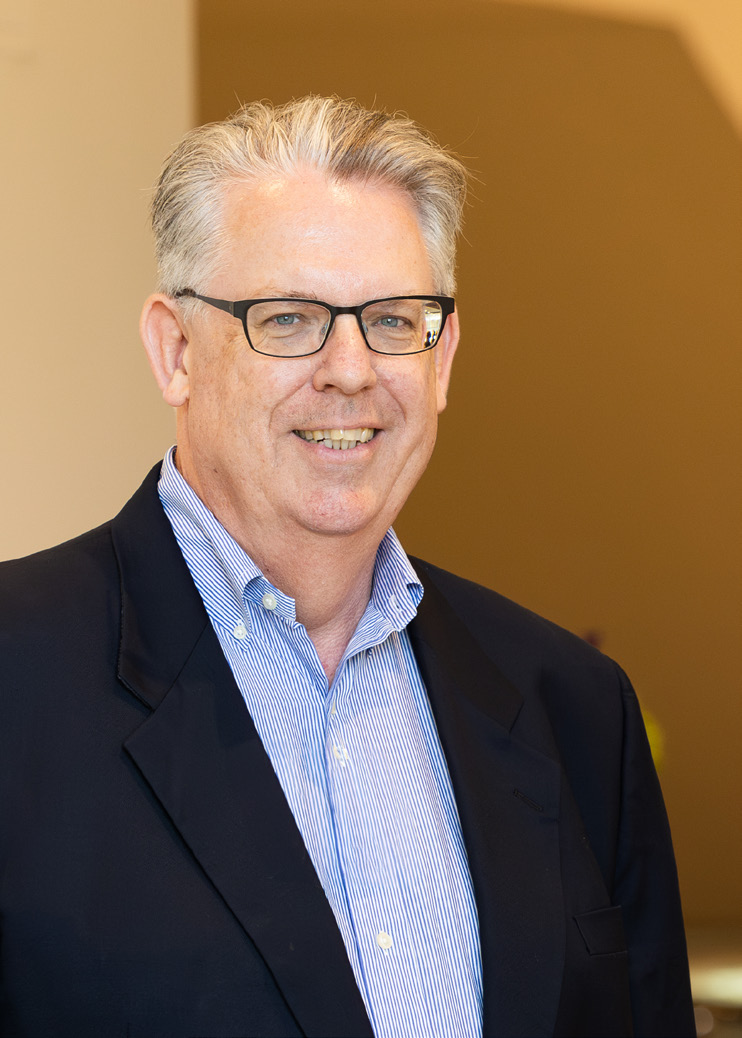
Bart Hamilton, the Robert Brookings Smith Distinguished Professor of Economics, Management, and Entrepreneurship, was the center’s inaugural director. Boumgarden was appointed center director and the Koch Family Professor of Practice in 2021, with Hamilton continuing to support the research mission and pulling in other faculty, including Seth Carnahan, associate professor of strategy, and Margarita Tsoutsoura, associate professor of finance.
These small businesses and medium-sized businesses are a key component of the economy. They employ many, many workers. And so, having strong, stable ownership is very important.
—Bart Hamilton, Robert Brookings Smith Distinguished Professor of Economics, Management, and Entrepreneurship
Meanwhile, the center is increasing its touch points with students. Rob Davidson, a first-year Olin Flex MBA student and entrepreneur, attended recent events on private credit and the Olin–Brookings research.
“I’m incredibly impressed with the resources that the Koch Center makes available to students and St. Louis as a whole,” he said.
“One of my favorite parts of the Olin–Brookings presentation was when Peter showcased the common priorities that owners have in evaluating a succession opportunity,” said Davidson, who’s interested in entrepreneurship through acquisition rather than via a startup.
“I knew that the same information could be used to nurture better outcomes between prospective small business buyers and owners.”
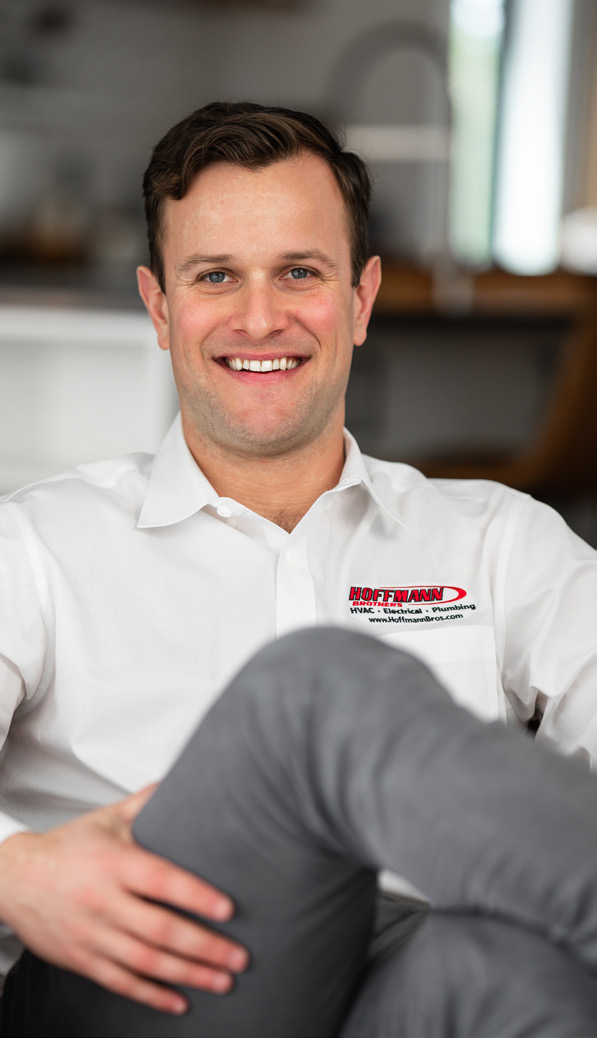
Better Outcomes
Better outcomes is the point of the Koch Center, which didn’t exist when Chris Hoffmann, MBA 2016, first started at Olin. He was part of a group of students who advocated for a nexus at Olin for family business. “The hard part for the school is you don’t always have students in every class who are interested in or come from that background,” he said.
He does. In 2016, Hoffmann and his brother Joe took over the St. Louis-based, family-owned HVAC services business their father began 28 years earlier with four employees and a simple business model. Chris is the CEO of Hoffmann Brothers and H.B. Solutions Group, which has full-blown home-services operations today in St. Louis, Nashville, and, most recently, Denver. Under Chris and Joe’s direction, the company has grown from about $10 million in annual revenue to an expected $160 million this year.
Hoffmann is a member of the Koch Center’s board and urges business owners to turn to the center. “Getting involved with the Koch Center is the important thing,” he said. The center, he pointed out, connects business owners with useful research and peers who are navigating similar problems, such as passing along a business to someone else.
For a lot of folks who are navigating succession and maybe first-generation, second-generation succession, those are just daunting, challenging issues to navigate.
—Chris Hoffmann, CEO, Hoffmann Brothers
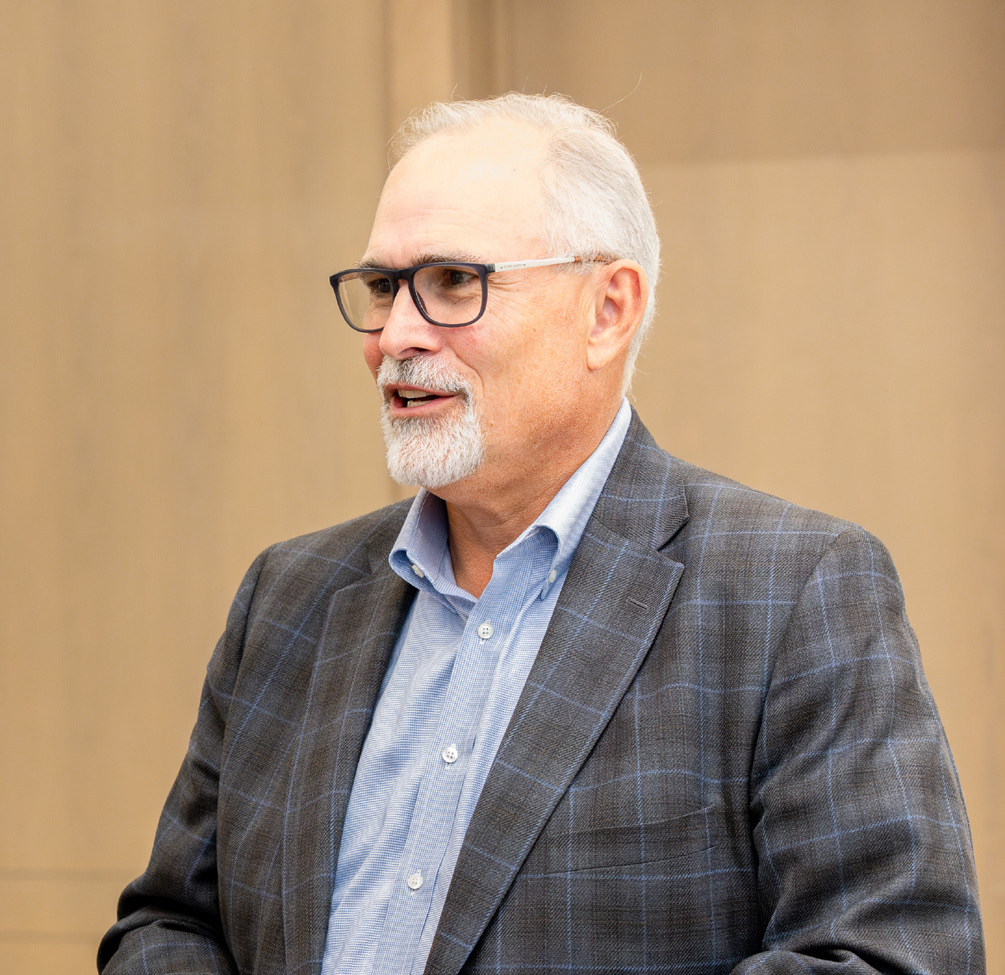
Xin Wei, EMBA 2021, knows the feeling. He and his parents run Corner 17, a popular Chinese restaurant on the Delmar Loop in St. Louis. “I do almost everything except cooking,” he said. His parents do that. “I feel like it’s come to a point they need to retire. But the problem and the challenge for us is who is able to take over my dad’s position? It’s difficult to find someone you can trust and you can rely on.”
Joe McKee, MBA 1991, is the chairman at PARIC Holdings, a holding company with a large construction arm that was established in 1979 and is one of the largest privately held St. Louis-based companies. Baby boomers owned many of the companies that PARIC has purchased recently, while others “are still holding on because they don’t know how to get out,” he said.
“In many cases, they’re not thinking bigger, and they’re trying to figure out transitions. And the transition usually happens way too late.” The Koch Center fills a crucial role for businesses, McKee said.
The backbone of this country was built on millions of businesses. Almost all of them started off as family businesses. But we’re so scattered, and there aren’t really great places to learn from other family businesses.
—Joe McKee, Chairman, PARIC Holdings
WashU Olin, he said, recognizes the power of bringing them together to ensure a future where they thrive.
A sample of what the Koch Center offers
Case competitions
In February, the center sponsored a first-of-its-kind case competition featuring St. Louis CITY SC, the region’s Major League Soccer club. Students from across the WashU campus and as far away as Washington, D.C., Indiana, and Georgia gathered for the competition, with $24,000 on the line.
The teams were to analyze St. Louis CITY SC’s books, examine opportunities, and offer recommendations to fulfill this prompt: How should the Taylor family, the team’s owners, and the team allocate resources in the next five years to balance performance on the pitch, financial return on investment, and development of the broader region, culturally and economically?
The winning undergraduate team, “Arch Consulting,” cited numbers placing St. Louis last out of 55 cities in terms of recovery from the pandemic. The answer, they suggested, was a community lending program to stimulate entrepreneurs’ investment in the economy near CITY Park, the team’s pitch and in-stadium events such as a farmers market during off days.
The Entrepreneurship Through Acquisition (ETA) Club
Some business students don’t want to create a startup. They’d rather buy an existing business and help it grow. “With a startup, you have to come up with a product, ensure there’s a market fit, gain customers, and then you can focus on growing the business,” said Chris Pitts, MBA 2025. He cofounded the ETA Club, funded by the Koch Center. “ETA allows us to skip those first three steps. You already have a product, customers, and work processes. You can come in and make improvements to grow.”
The ETA Club aims to connect students with potential business sellers, business brokers to act as go-betweens, and investors to fund their searches.
PhilanthropyForward
This year, the Koch Center launched a philanthropy incubator program in partnership with the Chancellor’s Office to help donors maximize the impact of their giving. The PhilanthropyForward team helps donors tackle the greatest challenge in their giving, whether that be how to make a bigger difference in a certain area, how to measure their impact, or how to engage their family members in their giving.
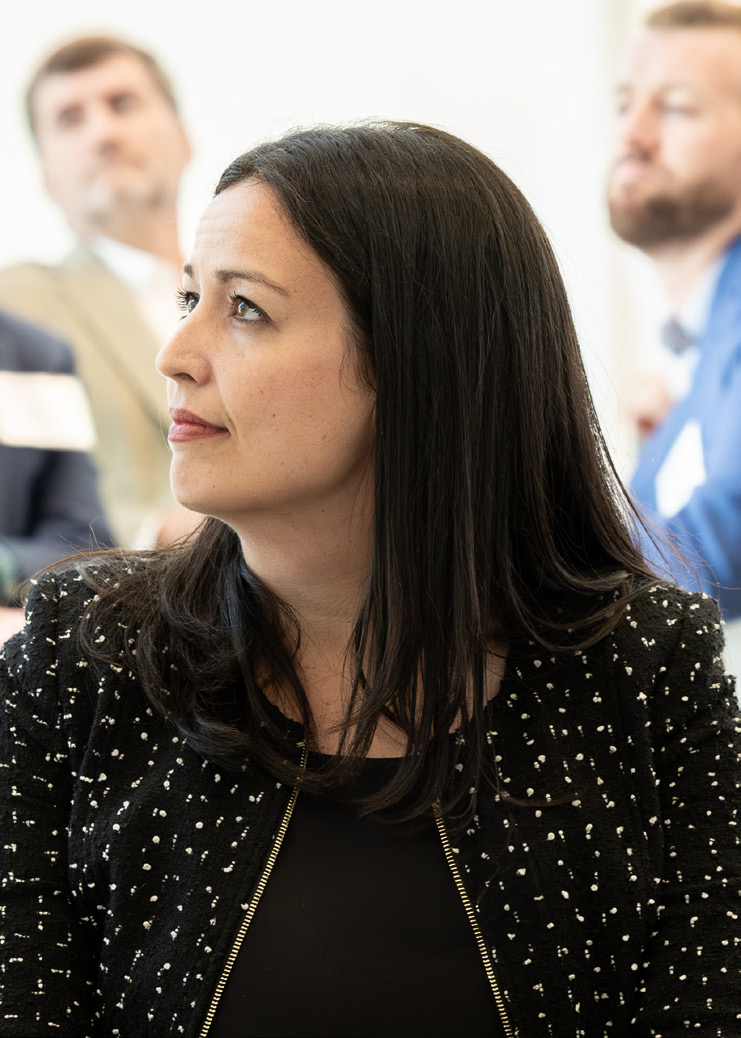
The program includes a three-day immersion experience at WashU, three months of individual virtual coaching and peer discussions, and a final retreat, during which participants present their five-year plans for their giving.
PhilanthropyForward is specifically designed for donors themselves rather than philanthropy professionals who lead foundations.
“This creates a peer group of high-powered philanthropists who can learn from each other and even work together on shared interests,” said Margaret Schnuck Rogers, MBA 2022, director of the initiative.
“Embedding a philanthropy program in the center makes complete sense here in St. Louis, where there is a loyal philanthropic community with many donors’ wealth coming from family business,” she said.
Fellows in the first cohort included donors who make significant personal contributions to charitable causes, those who have or plan to start a donor-advised fund or foundation, executives who control their corporate foundation, and family members who have a decision-making role in their family foundation, such as Rachel Wallis Andreasson, EMBA 2012.
Through PhilanthropyForward, the Koch Center serves as a bridge between business-leaders-turned philanthropists and the researchers and local community leaders that hold expertise in each field.
—Margaret Schnuck Rogers, Initiative Director, PhilanthropyForward at WashU
Wallis Andreasson is a board member and shareholder of Wallis Companies, a family-owned business that her father founded in 1968.
“I was honored to be asked to participate in WashU’s PhilanthropyForward program,” she said.
“It was the perfect combination of learning and hands-on application that allowed me to set up our family foundation for the future. On top of that, it was a terrific environment to learn from the other participants, faculty, and staff.”
Case competitions featuring St. Louis CITY SC
Students from across the WashU campus and as far away as Washington, D.C, Indiana, and Georgia gathered for the competition, with $24,000 on the line.
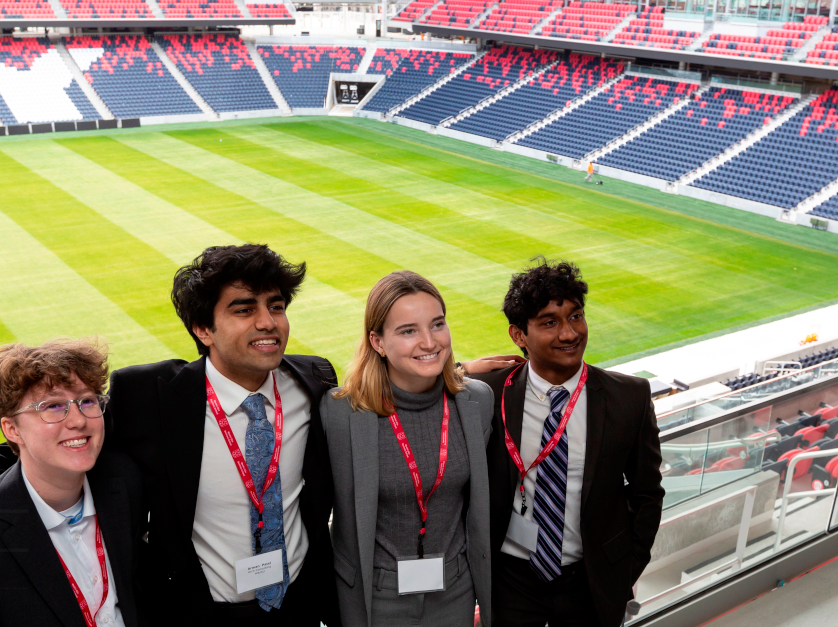
Media inquiries
For assistance with media inquiries and to find faculty experts, please contact Washington University Marketing & Communications.
Monday–Friday, 8:30 to 5 p.m.
Sara Savat
Senior News Director, Business and Social Sciences
